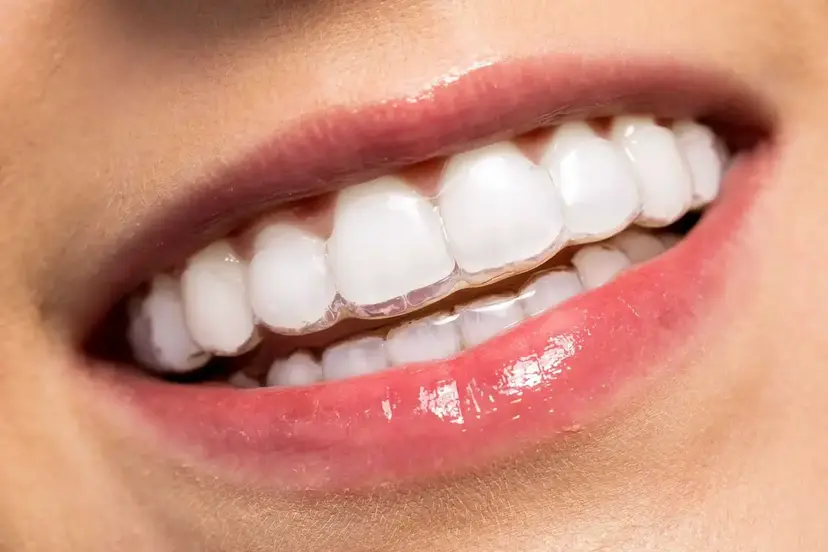MakeO blog
Parents always scare their children by talking about cavities and how they can appear if one does not maintain oral hygiene by practising good oral care habits like brushing twice a day, flossing and using mouthwash daily. We have all heard some adults warn us about getting cavities when they have caught us having some extra chocolate or indulging in something really sugary sweet. But what exactly are these dental cavities that we fear so much and how many types of dental caries should we know about?
In this article we cover all the different types of cavities in teeth so that you know exactly what to fear and stay away from!
What are Dental Cavities or Caries?
Dental caries or dental cavities also known as tooth decay are highly damaged areas of teeth that are hard and generally have holes or openings in them. Dental caries are a result of the interaction between the bacteria in your mouth and the sugars and starches that you consume. This interaction at first, manifests as plaque, a yellow sticky biofilm. This film hardens into tartar and finally results in tooth decay or a dental cavity.
And the worst part? If not treated, a cavity can infect the inner layers of the tooth like dentin and the pulp, resulting in excessive pain, sensitivity and infection.
Types of dental caries or cavities
1. Occlusal or Smooth-Surface Cavities
This type of cavity in the teeth only affects the enamel and is slow to progress. Some symptoms of these cavities can be bad breath, pain and discomfort while chewing, swollen gums, and a foul taste in the mouth. Professional fluoride treatment can greatly help treat an occlusal cavity.
2. Pit and Fissure Cavity
This type of tooth decay occurs on the chewing surfaces of the teeth which is the back of the teeth in the molars. Typically seen in children, they can be avoided or treated with dental sealants. This kind of cavity is commonly seen in people who don’t brush their teeth enough. This failing to brush results in the accumulation of food particles in the molars which later turns into tooth decay.
3. Root Cavity
As the name suggests, root cavities form on the root of the teeth when the gums have receded and the root of the tooth is left exposed. Root cavities are common in older adults who fail to maintain oral hygiene and face receding gums. Root cavities can be treated with a root canal, however, it is better to treat a root cavity at the earliest as they are the quickest to develop!
How To Prevent Dental Cavities?
Now that you know the different types of dental caries that exist, you must practise a few important habits to prevent them.
- Use a soft-bristled electric toothbrush like makeO toothsi electro, an powerful, effective yet gentle toothbrush that easily reaches corners unreachable by normal toothbrushes and eliminates food particles and bacteria. Brush twice a day using this and fluoride toothpaste.
- Replace your electric toothbrush heads every 6 months or replace your regular toothbrush every 3 months to maintain hygiene.
- Floss daily to make sure that all the teeth gaps are free of any starchy or sugary food particles. You can try the makeO toothsi smart water flosser for flexible and thorough cleaning of your teeth.
- Gargling with a fluoride mouthwash to remove any remaining bacteria, germs and food particles. This can also help prevent bad breath and a foul taste in the mouth.
- Avoiding or cutting down on sugary drinks, desserts, etc along with starchy foods like pasta, potatoes etc. Ensure that you rinse your mouth with water or mouthwash after consuming such foods to keep your mouth clean.
- Regularly visiting the dentist to get professional dental cleanings. This way professionals can check your teeth to catch cavities early.
When to visit an orthodontist?
If you feel sensitivity or discomfort or notice bad breath, holes, discolouration, or pain while chewing and swollen gums then it is time to visit your dentist.
Cavities or tooth decay is a serious dental problem that must be treated immediately or it can escalate and reach the tooth pulp which can cause infection and immense pain.
FAQs
What are the different types of caries?
There are 3 main types of cavities in teeth:
- Occlusal or Smooth-Surface Cavities
- Pit and Fissure Cavity
- Root Cavity
What are the 4 causes of caries?
The main causes of tooth decay or dental cavities are
- Overconsumption of sugary or starchy foods
- Not brushing enough or practising sufficient oral hygiene habits
- Location of the tooth
- Receding gums, old age
How many stages of dental caries are there?
There are 5 entire stages of dental caries out of which the first one or two are reversible. The later stages are more intensive and can cause permanent damage.
What type of disease is caries?
Caries or teeth cavities or tooth decay is a dental issue that when severe or advanced can cause permanent damage to the tooth and even infect the tooth pulp.
related categories
Related articles

Types of Braces: Removable vs Fixed Braces, Which is Right For You?

This Diwali, Smile Bright With makeO Teeth Whitening Kit

Dr. Pravin Shetty: Pioneer in Lingual Orthodontics & Innovative Smile Solutions
How do I Know I’m the Right Candidate for makeO toothsi Teeth Aligners?

